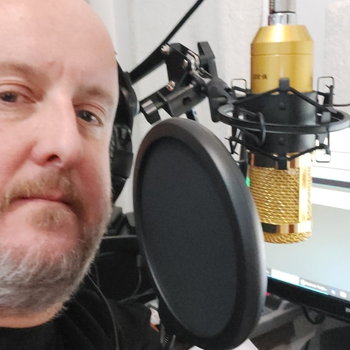
#04 Hosts
Loading player...
Not all hosts are created equal and the range of skills you encounter may range from unskilled hobbyist, through adequate interviewer to seasoned pro.
Let’s talk about three main types, “aggressive”, “bad” and then “good” hosts so you’ll know how to deal with them.
Aggressive hosts are the most frustrating to deal with. They mostly like to hear their own voice and believe that they know your product or message better than you do. With these hosts, you need to use your knowledge to move from their ”self-indulgent babble” and back to your message. At this stage you will already know how to handle the studio environment and the equipment.
A bad host will have done no homework on your product or message, and will try and sound competent to hide that fact. This is the worst-case scenario as he won’t be able to lead you to what’s important to your expertise. You may have to take over a certain amount of control on the program.
An average host will sometimes allow you the time to get your message across but may interrupt you to make a point – sometimes relevant and sometimes merely an irritant. They will also try and help you by prompting when there is no need. If you need to interrupt or talk over the host, remember, it’s your message so don’t be afraid to be firm and push the information. Do not allow the host to bombard you with questions and expect you to answer in the order they deliver. Answer one question at a time, and take your time. There is no rush.
A good host or interviewer will be there to help you through the process. They will understand the technical aspects of the studio and be able to put you at ease and settle any nerves you may have. They will know that their role is not to talk incessantly nor over your speech. A good host will prompt you and guide you through the topic, always backing off to allow you to talk about whatever your expertise and message encompasses so you can get your message across. They will also give you the lion’s share of
Let’s talk about three main types, “aggressive”, “bad” and then “good” hosts so you’ll know how to deal with them.
Aggressive hosts are the most frustrating to deal with. They mostly like to hear their own voice and believe that they know your product or message better than you do. With these hosts, you need to use your knowledge to move from their ”self-indulgent babble” and back to your message. At this stage you will already know how to handle the studio environment and the equipment.
A bad host will have done no homework on your product or message, and will try and sound competent to hide that fact. This is the worst-case scenario as he won’t be able to lead you to what’s important to your expertise. You may have to take over a certain amount of control on the program.
An average host will sometimes allow you the time to get your message across but may interrupt you to make a point – sometimes relevant and sometimes merely an irritant. They will also try and help you by prompting when there is no need. If you need to interrupt or talk over the host, remember, it’s your message so don’t be afraid to be firm and push the information. Do not allow the host to bombard you with questions and expect you to answer in the order they deliver. Answer one question at a time, and take your time. There is no rush.
A good host or interviewer will be there to help you through the process. They will understand the technical aspects of the studio and be able to put you at ease and settle any nerves you may have. They will know that their role is not to talk incessantly nor over your speech. A good host will prompt you and guide you through the topic, always backing off to allow you to talk about whatever your expertise and message encompasses so you can get your message across. They will also give you the lion’s share of





